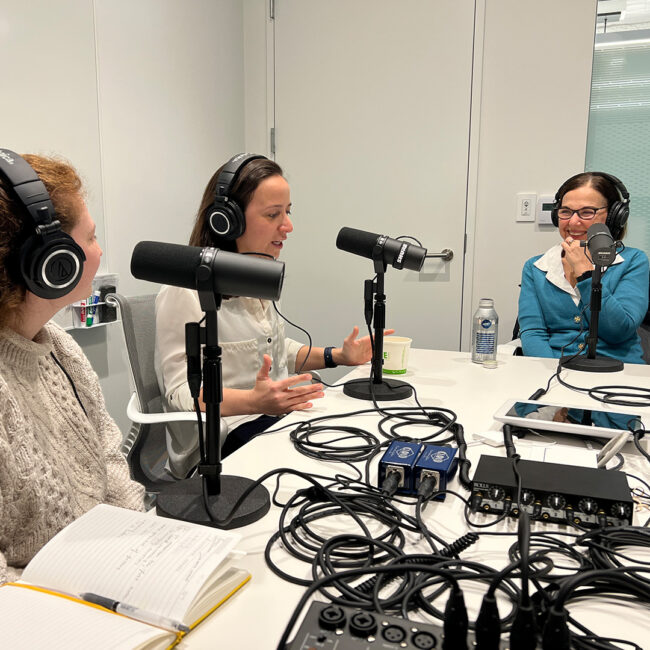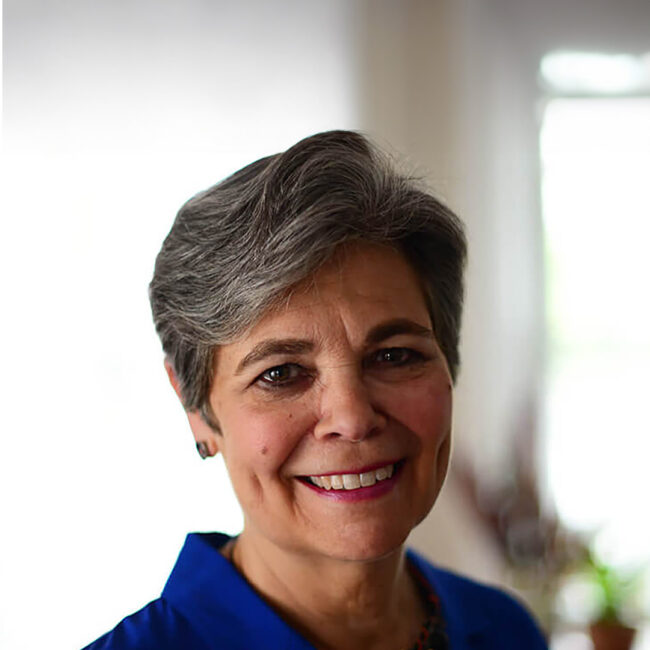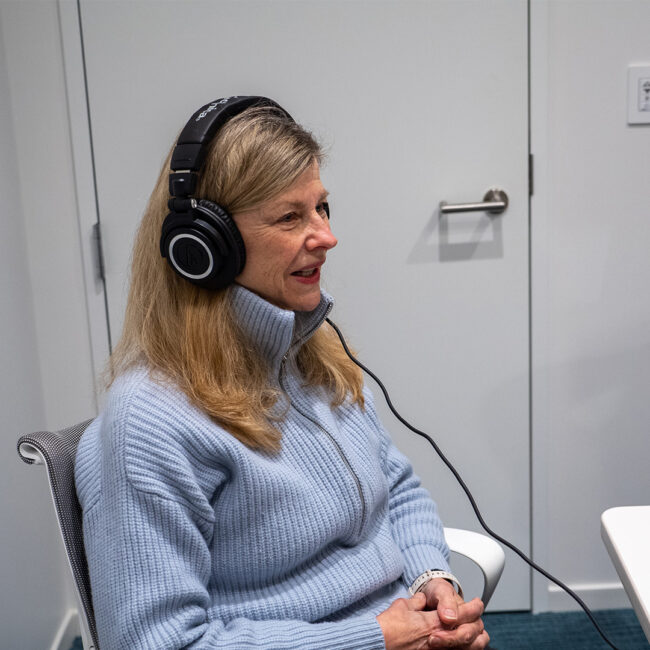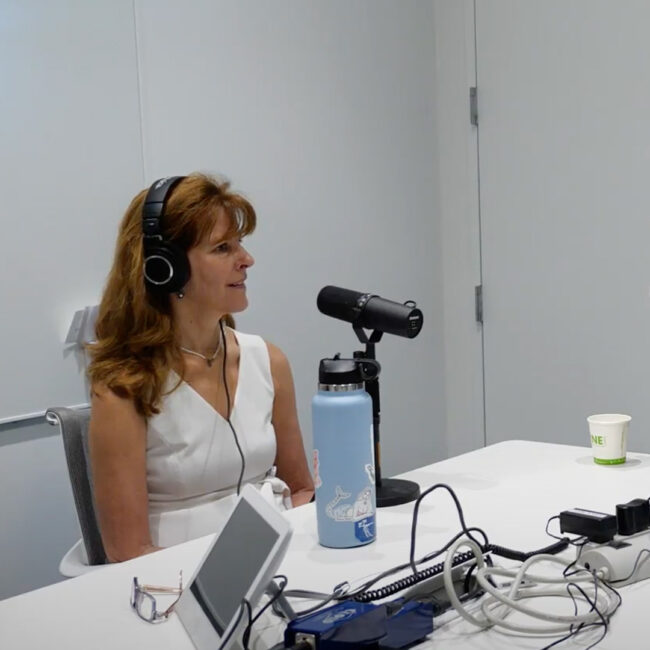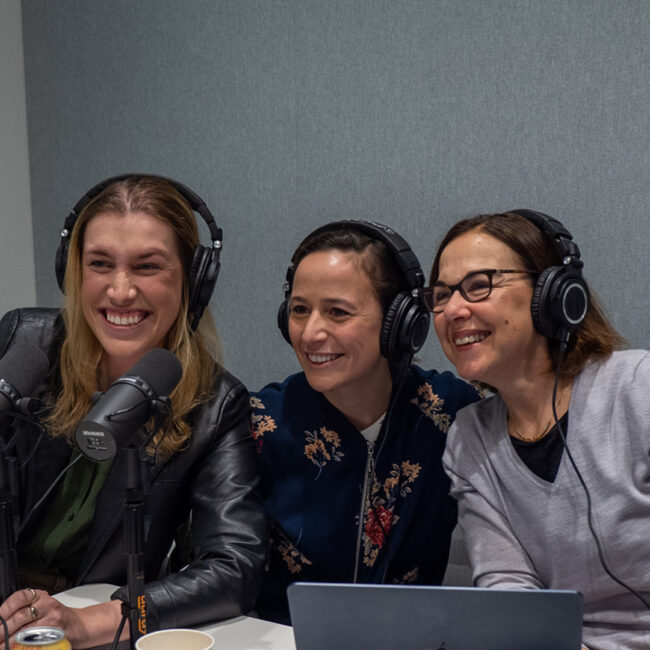
An Empowered Survivor: A Conversation with Hil Moss
Episode Transcript:
Natasha Steele:
Hey everyone and welcome to Health After Cancer. I'm your host, Natasha Steele. With me in the studio today are Lidia Schapira. Hi Lidia.
Lidia Schapira:
Hey Natasha.
Natasha Steele:
And Elle Billman. Today we're focused on empowerment and who better to talk about this than Hil Moss. I'm so excited to have her on our show. She's a young breast cancer survivor herself. She's also an entrepreneur and an active patient advocate in the cancer community. I first found out about Hil and her work while I was scrolling through the internet late one night, searching for everyone and anyone talking about the issues facing cancer survivors.
I had just finished my own active treatment and I was looking for support. Even her online presence just had this magnetic energy and I found myself cold emailing her at 1 o'clock in the morning asking if she'd want to connect. This late night impulse has led to one of my favorite friendships and collaborations, and I'm so excited to be joined in the studio with her today. Hil, welcome to our show.
Hil Moss:
Thank you so much for having me.
Natasha Steele:
Can you tell us a little bit about your story and what brought you to survivorship?
Hil Moss:
I would be happy to. My story actually starts in 2018 and it was a moment of actually great transition in my life. I had spent the majority of my 20s living in New York City, working around the clock consulting job and had decided it was time for a change. I was 28, I was starting graduate school. I left my job and I said, my job for the next three months this summer is to get healthy. I had put my body through so much, I wasn't sleeping enough, and I did everything in my power to feel fit, to feel strong. I was kayaking.
I did a triathlon, and I remember feeling by the end of that period that I was as healthy feeling as I'd ever been. And so fast-forward, I started graduate school and about six weeks into my program I felt a lump. And I felt a lump in my breast. I really had no experience or family history with breast cancer, so it wasn't something that would've even been on my mind. But I had the stories I'd heard in the back of my head, and when I felt that lump, I figured it was time to go in and have things checked out. And after a tumultuous few weeks was diagnosed with breast cancer at age 28, and that is really when everything completely changed.
Natasha Steele:
I can only imagine that feeling when you're, as you said, gearing up to be the healthiest version of yourself and feeling like you're in tune with your body and you know what's going on, and then to have perhaps a sense of betrayal by your body that something else was happening that you weren't aware of.
Hil Moss:
100%. I will never forget that feeling of touching my side and feeling what it was almost like a small pea right under the skin. And just having this inkling in the back of my head that maybe things were about to entirely change. And what was so interesting was being 28, having no family history, it was not an easy path to diagnosis. I went in and went into the health center at my school, was immediately told that there was absolutely no way this was cancer.
That it just couldn't be possible. And it was like that every step of the way. "Okay, we'll send you for an ultrasound, but there's no way it's cancer." "Well, we'll send you to a biopsy, but there's no way." And then of course that led to that moment of hearing the C word for the first time, and it really was a shock for that reason because I hadn't been put in the frame of mind that cancer was something it could possibly be.
Natasha Steele:
So you went on and you got treated for quite a long time at the Farber, and what was the transition from treatment like for you?
Hil Moss:
It was tough. It was tough. I remember actually only weeks after my diagnosis, I connected with a fellow survivor who had also been treated at Dana-Farber. We connected through social media. And I remember so specifically that I hadn't even started chemo yet, but she gave me this warning. And her one piece of advice was, "I have to tell you, Hil, I don't want to scare you, but the hard part will come later." And I remember at the time it was so impossible to believe because I was gearing up for my chemo protocol.
I had learned by that point that I had a genetic mutation and would be undergoing a double mastectomy. How could it get any harder than that? But I kept that advice in the back of my head. And then when I finished active treatment in November of 2019, I had a period of a couple of months where I tried to act like everything had gone back to normal. Cancer was out of my repertoire, I was right back to normal life. And then of course we think about November, 2019, it was only a few months when the pandemic hit and all of a sudden, I was alone. At that point, I didn't even have my dog. I lived entirely alone.
And I had this time and space to sit and really reconcile what had happened. And I was dealing with significant mental health struggles, I was dealing with early side effects from my tamoxifen maintenance therapy. And that was when I really began to have a taste of the challenges of cancer survivorship. And I was experiencing it myself and I was hearing it from others in the community on an ongoing basis. And that was when my eyes were really open to, oh, this is a whole new chapter, and what does this mean for the millions of us living as cancer survivors on this planet?
Natasha Steele:
It's so interesting talking about that moment that you can remember where you heard from another survivor, "Listen, what's going to come next is really hard." I had the exact same moment that I can recall really vividly. I think a lot of survivors probably have that memory of hearing that the post-treatment phase is really hard and thinking to themselves, how could things be harder than now when this is a full-time job, mind, body, and soul?
And for me, it was watching Suleika Jaouad's Ted Talk, and hearing her up there talk about after going through bone marrow transplant at Sloan Kettering and everything she went through, that this was the hardest part for her, this afterlife. And I was like, "What is she talking about?" And I remember asking my friends who were also getting treated at the time, "Have you guys heard this? There is this rumor going around out there that this phase, chapter two is really, really hard." And the feelings were mixed. Some people were like, "Yeah, I could sort of see that." And some people were like, "No way." And I totally hear you. For me, this has been the hardest part.
Elle Billman:
It's so interesting to hear Natasha and Hil your stories about how survivorship is this second big act because for me, no one told me, "Hey, survivorship is going to be hard." Because I was so young. And that's something that I figured out on my own as an adolescent and a young adult. Hil, I'm curious to hear a little bit more about the coping skills that you used when you were just finishing treatment and you were starting to have some mental health struggles.
Hil Moss:
I remember so specifically the moment that I identified I was even having mental health struggles. And that was, there was a moment, it was probably, it was during the pandemic early, so it must have been in March of 2020 and I remember that I woke up in the middle of the night, it was probably 2:00 AM. And I noticed that my elbow hurt. And had I paused for a second and thought, I wonder why my elbow hurts, I might have realized that that day I had done one of those online pandemic workout classes that everyone was doing on YouTube.
I probably lifted weights incorrectly because there was no one there to guide me and my elbow hurt. But that wasn't what happened. The first place that my mind went was, I have an unusual sensation and what if it's cancer? And then it spiraled, what if it's cancer? Well, it's the pandemic. So my oncology team is so busy, where do I go? Who do I talk to? And I stayed up all night spiraling. And I remember I woke up the next morning and realized that I needed help to deal with this. And I went hunting for mental health support, and I will say at the time it was not easy to find someone who really understood the needs of cancer survivorship. Eventually I did, and we actually went through a pretty specific post-traumatic stress therapy intervention where I was taught, I was given a thought record to write down a thought, something like, "My elbow hurts, it is cancer." And then to go through a process of actually evaluating that thought and understanding maybe what was rooted in reality, where I was drawing conclusions and building up that toolkit helped me so significantly because I'd love to hear from the two of you, but I think those thoughts they will come and go and it's just a reality of living as a cancer survivor.Natasha Steele:
Yeah. We had such an interesting conversation with Lauren Heathcote just about this and this idea of pain and what the experience of pain is for cancer survivors and sort of how to reframe a lot of the physical sensations that we experience. And as you say, sort of interrogate thought processes in terms of understanding their basis for reality. And so I think that's such a common experience of cancer survivors. And it's really hard because a lot of the instructions you get from your medical team is, "Hey, if anything feels unusual, let us know." And I don't know about you, but there's a lot of things that feel unusual for me every day-
Hil Moss:
100%.
Natasha Steele:
... that are totally usual.
Hil Moss:
I would be curious, Elle, you had mentioned your experience of survivorship. As a childhood cancer survivor, was there a moment of transition where you ever felt like, "Oh, now an adolescent I'm noticing these challenges," or was it a more gradual experience?
Elle Billman:
Yeah, I would say it was a mix. When I first finished my treatment, I was able to transition back to school. And for context, I finished my treatment when I was five, so very young. And I needed some additional support with my education in the beginning, but my parents were very on top of that and helped me get all of that. So it wasn't me taking the lead in that way. Later on, when I was a junior in high school, there was a pivotal moment in my physics class where we were doing a hearing test and I realized my hearing was worse than my peers.
And I was able to make a connection that maybe that was because of some of the medications I had received during my treatment. And for me that was the really pivotal moment of my cancer history is something that can be with me for the rest of my life, and it's important that I'm aware of my treatment so I can responsibly manage my health in the future. So that's kind of my pivotal moment. Another part of my story was then trying to understand my cancer history because I was a teenager and didn't want to talk to my parents about it, so kind of going on the hunt to figure it out for myself.
Hil Moss:
That resonates so deeply. And I think one of the really interesting components of being a young cancer patient or survivor is this dynamic with your family, with your parents. And I know for me as a 28-year old patient, I was single, my parents became my caregivers. And this was at a moment in my life where I'd been out as an adult for years, and the concept that my folks who were approaching their 70s at the time would become full-time caregivers of their adult child, it was a hard pill for me to swallow. It was just something that I had never anticipated.
I could not be more grateful for the role that my parents played. I mean, when I was recovering from my breast reconstruction where I actually had tissue removed from my abdomen, I couldn't even get up on my own. I had my father carrying me to the bathroom. And I'm both so grateful but it also created this extraordinary sense of guilt on my end for what I knew. And I know they would've done it a hundred times over, but that feeling still was so uncomfortable as an adult.
Elle Billman:
Something that my mom and I navigated more during my adolescent and young adult was disclosure conversations. Because I was so young when I was diagnosed my cancer story is really my mom's story as well. And so there were times when she would be telling people that I had cancer, and I'm like, "Why are we telling the person who's helping us get jeans from the store? That doesn't really seem like needed information." So I'm curious to hear if you and your parents ever had discussions around disclosure conversations and when your cancer history would be shared and with who.
Hil Moss:
That is such an interesting question, and I think it relates partly to my general approach to disclosure. And I will say that about five days after I was diagnosed, I took to social media. And part of the reason was that in those early days of cancer diagnosis, it becomes so hard to keep everyone up to date. And you are living in this kind of spiraling world and the thought of reaching out to folks individually, it just became impossible. And so I made the decision, you know what I am going to take to social media?
I'm going to share that this is something that can happen to a 28 year old and that this was what I was going through. And it very immediately led to meeting some of the survivors who would be so critical in my journey. And so that was actually the start. And so I think my parents never really had to worry about disclosure because I was just shouting this to the rooftops. I'm sure that was probably uncomfortable for them sometimes, but that was the relationship with disclosure.
Natasha Steele:
Hil, can you talk a little bit about what you found helpful or not helpful during your recovery, including people in your life, comments, things people did? What was that like for you?
Hil Moss:
One of the most interesting questions that we have in cancer survivorship is around this question of information. And what information is helpful to receive as an active cancer patient? What information is helpful to receive maybe afterwards? And I want to give a very specific example here because I think the cancer patient journey evolves over time. So I remember so specifically that when I was in active cancer treatment, I was on a protocol of Taxol chemotherapy, and of course as part of that chemotherapy, I was also receiving steroids.
And that led to two things. One, I was hungry all the time, and two, my taste buds completely changed. And I am a savory girl through and through. When I die, find me in a jar of pickles. It is so strong. I have very little sweet tooth. That completely changed when I was on Taxol, all I wanted was two things. I wanted moon pies. I don't know if you know what moon pies are. My sister would send them to me from Tennessee, and when I tell you whoever the chef is at Dana-Farber who's making the chocolate cake, my hats are off to the chef. I would go wait for my chemotherapy infusion so that I could have that piece of chocolate cake.
And so I remember so specifically I was probably a few chemo sessions in, I was eating my chocolate cake, I'm sure with the Benadryl, it was probably chocolate on my face. It couldn't have been a pretty sight, and an individual walked up to me, wonderful person who was the nutritionist at the time, who was going to come and give me some information about how we think about nutrition in cancer survivorship. I want to be very clear here. She was wonderful. I used so much of this advice now in my day-to-day life, but at that moment I felt so mortified.
Because here I was learning about all the colors that I was supposed to be eating. All I was eating was brown moon pies and cake. And I remember going into my oncology team a few days later and saying, "I am so embarrassed. The nutritionist came in and I had chocolate all over my face." And I remember my oncology team saying, "Hil, we don't care. At this moment what we care about is the fact that you're eating at all and that you're continuing." At that point I was actually putting on weight and they said, "This is a good thing and we'll deal with the other stuff later." And I think that is such an interesting question in cancer survivorship is, when do we give information?
Because now I'll be honest with you, I really do think about all those lessons she taught me. I try a gentle approach to nutrition. I still have a piece of cake when I want it, but I do take to heart some of those risk reducing practices, but at that particular moment, maybe that wasn't exactly the time. And so again, I think it's just interesting to think about how we dole out that type of guidance throughout the phases of survivorship. But I'd be curious to hear from the two of you if you had any thoughts about helpful, not helpful information that you received.
Natasha Steele:
Well, I have sort of a similar story around nutrition when I was on treatment. When I had my first round of chemotherapy, I was in the hospital and I went home right after and I sort of anticipated being really nauseous and going through all the classic things that one goes through after chemotherapy, which actually when my first treatment didn't happen to me. And so I sort of thought of this as a time. I had two weeks in between every cycle, and I sort of thought of it as a time to load up on calories.
And so I got this nut butter which had all of these different types of nuts and seeds, and I was like, "Gosh, I'm just really going to work on my nutrition." And I ate so much of it that I was really putting on weight and not getting very nauseous or not throwing up, things like that. And so I went to my care team and said, "I'm really interested in nutrition and making sure that I'm doing all the right things." And I got a similar answer of, "We don't care what you're eating, just eat anything you want."
But for me it was a moment where I was really looking for guidance. So it was sort of like the flip side of that which is to your point around each person is different and they're in a different place during treatment, after treatment and things like that. And how do care teams personalize the way they deliver information, the way they deliver services and interventions based on where that individual patient is at the time?
Hil Moss:
I think what's so interesting about that as well is it really illuminates something else that's really core to survivorship, which is your relationship to and your perception of your body is changing in real time. And that can be extremely difficult to reckon with, that you look in the mirror a different person than you knew. And I think how we think about arming folks to really navigate those changes. It is a relationship you have with your body.
Natasha Steele:
And just as you were saying, you had spent the summer before your diagnosis working on being your healthiest self and having this intense relationship with your body where you were challenging your body in different ways physically. And so much of survivorship for so many people, and I'm sure you would consider this as part of your own practice is about rebuilding that relationship of trust. And that is challenging when your body is evolving in real time, as you were saying in front of you, and so I think survivors sort of navigate that.
Hil Moss:
No, 100%. I will never forget the moment in my treatment that I realized I was completely at the whim of my body, and that was after my deep flap reconstruction. So I had a breast reconstruction where fat and nerves and blood vessels were taken from my abdomen and used to reconstruct my breast. It's an extraordinary procedure. Sometimes things happen and something happened to me, and that was that I developed a very significant hematoma in my left breast. And I remember for God knows whatever reason, I decided that my TV show of choice during cancer treatment was going to be Grey's Anatomy.
I watched about 12 seasons. And so I could see it happening in real time. I was like, "This is my Grey's Anatomy moment." It was two in the morning, there was blood everywhere. I was getting sprinted down the hospital hallways into the OR. But what was so interesting about that experience is at that point I'd had a lot of surgeries and what I knew was by the time you made it into the OR, usually you were kind of conked out. You'd had the drugs, you didn't really know what was going on, but in this case, it happened so quickly that I was fully present. And I was looking at everyone around me in the OR.
They looked extremely concerned. And one of the first tasks that they had was to actually move my body from the bed onto the table. And when I tell you worst moment of my life, I'll never forget this. They couldn't get me, they couldn't move me over and I couldn't help because I'd been completely opened at my waist. So they're running around, they keep bringing more people on, they're like, "Hey Rick, we need a little help we need to hoist her. We can't." And I'm like, "Oh my God, talk about a night nightmare."
But I remember so specifically, finally, maybe it took 10 people, they got me onto the table and I remember thinking, "I have no power over my body right now. There's nothing I can do." And that was a hard pill to swallow, and it took me a long time to rebuild the trust in my body after an experience like that where you are fully at the whim. You are at consciousness in your head and you've got nothing on the vessel you're living in. It's an interesting experience.
Lidia Schapira:
Let's change the topic now. Hil, five years after your diagnosis I'm interested in hearing a little bit more about where you are at with your survivorship and how you think the field is moving and what recommendations you have for those of us who are interested in making it better for cancer survivors.
Hil Moss:
That's a wonderful question, Lidia. Thank you. I think one of the reasons that I find cancer survivorship so fascinating and that I became nearly obsessed with thinking about it is because it is a fundamental shift in the human condition. It is a state of being that didn't exist at this scale for an extremely long time. And in so many ways, it is a gift. We are seeing more and more folks living with and beyond cancer as medicine improves. I think we have also reached an inflection point where the world has to understand that this is hard.
We love to frame cancer as this battle and use this fight language because it feels good to say, "Oh, this person battled cancer and they conquered it and they survived." But the problem is that creates an expectation. And the expectation is that you should finish cancer treatment and everything should be okay and hunky dory, and you're going to move on with your life. And what we know from looking at the research, what we know from talking with fellow survivors is that that is just not the case.
What we know is that survivors have significant risk factors on the mental health side, on the physical health side, things that may not even seem directly related to the biology of the tumor at the time, but are significant side effects from therapeutics. And we have to see this as a valid and very significant chapter in the cancer patient journey. And we have to then design interventions for it specifically.
And it has been such a gift as a survivor myself. I'm not a clinician, but I've gotten to know so many clinicians who are thinking about this issue. And it's going to take a mind shift, and it's going to take actually creating interventions and support systems for survivors that are personalized, that provide us with the tools that we really need to manage our care moving forward, and most important, that validate our experiences, that acknowledge what it is like to live as a survivor.
Lidia Schapira:
So Hil, how can cancer survivors support each other? What is the role of that connection and community?
Hil Moss:
I think that the cancer community is one of the most extraordinary things I've experienced. I'll say I actually just spent the past few days here on the West Coast staying with a dear friend of mine. She reached out to me about two weeks after my mastectomy in my Instagram DMs. And we were spending the weekend together this year because we are preparing for her wedding in which I'm a bridesmaid.
And it was a perfect example of how hardship can bring people together in this really unique way, and you can form significant bonds. So on the one hand, I think there's just an opportunity for friendship. On the other though, we have to start putting more emphasis on the value of survivor collective intelligence. There is so much to be gained in the medical literature from understanding how to help survivors navigate their care, but there's also so much to be learned from our peers.
And one of the most extraordinary things that I see happen on a day-to-day basis in the community is the exchange of ideas and tips and tricks for managing things like side effects. And when we actually put our brains together, you can really improve quality of life. So that element of peer-to-peer support I actually think has to be integral in any clinical care model for survivorship. But I'd be interested, Elle and Natasha, if that's something you've experienced in your journey.
Elle Billman:
Yeah, I agree with so much of what you just said. I think something that was really empowering to me as I came to reconcile my cancer history and take ownership of it as an adolescent and a young adult was learning about other people's cancer experiences and in doing so kind of validating my own experience. And I think that has been a big driver for why we're doing this podcast. We want to have people come on and share their stories so our listeners can perhaps connect with them and learn from them. So we're kind of trying to target this collective survivorship experience and intelligence, as you said.
Natasha Steele:
Yeah, I think you guys both said it so nicely in terms of what the landscape is for survivorship. And Hil, you talking about this sort of white space after treatment where a oncology doesn't necessarily own the care of these patients longitudinally and primary care for different reasons hasn't been equipped with some of the skills and knowledge base to help manage short and long term effects. So then where do cancer survivors go? Where is their medical home?
But as a cancer survivor, I feel like, "Wow, all of the wisdom that I've gained has been from communities led by people like you." And one of the reasons we were so excited to have you join the podcast today is because at a moment where I was really searching in my own survivorship for who's talking about this in the national stage and who's thinking about survivorship in innovative in different ways, I found you and I found your website.
Hil Moss:
What a beautiful opportunity to marry these two worlds, of the clinical and the peer support. And I think that's where the magic is really going to happen in survivorship, is actually to start bringing these forces together to think about A, how do we support survivors on the clinical side? And how do we really think about interventions that can help us to navigate and manage our care long term? And then B, how do we match that with this collective survivor intelligence and really create a holistic model? And I think I would imagine, I don't want to speak for the clinician side, but I would imagine we both have so much to learn from that too. And I think that that is really where we can build powerful new innovation in this space is through that collaboration.
Natasha Steele:
Yeah, Hil, I completely agree, and you are just so right. Can I also say just after this conversation, I just feel genuinely excited for all that's to come in survivorship, particularly because I know people like you are working so hard on these issues. So a huge thank you on behalf of the whole Health After Cancer Podcast team for coming in today, taking the time to share your perspective with us.
We are so grateful for people like you, people who are listening intently to the needs of this community and thinking of new and brilliant ways to support the millions of people living with and beyond cancer. So again, huge thank you. It's just been phenomenal to get to spend some time with you, hear about your work, your lived experience, and get to share this space. So again, this has been awesome. Thanks for being here, Hil.
Lidia Schapira:
If you enjoyed listening to us today, please rate, follow and subscribe to Health After Cancer wherever you listen to podcasts.
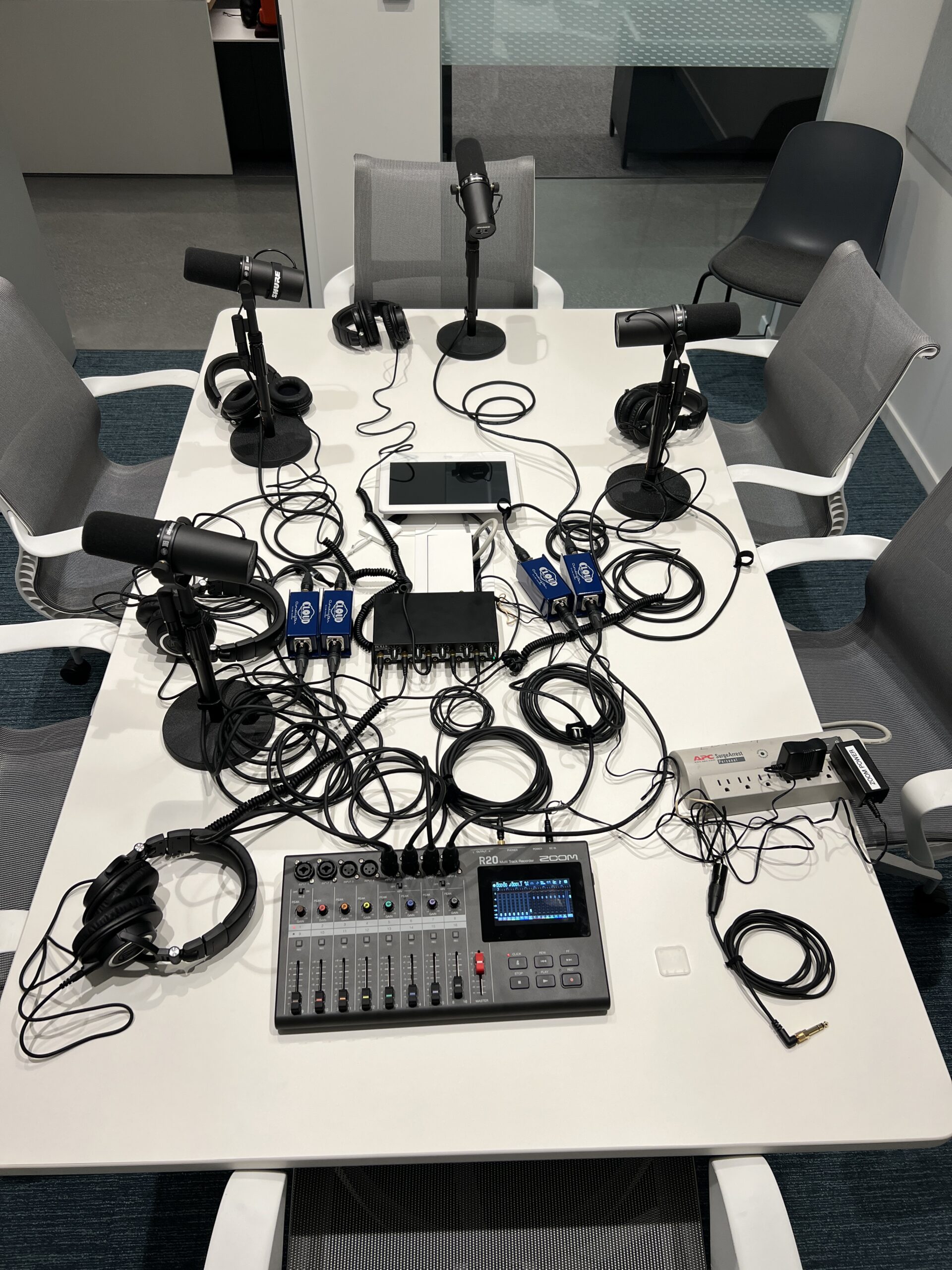
Meet your hosts:
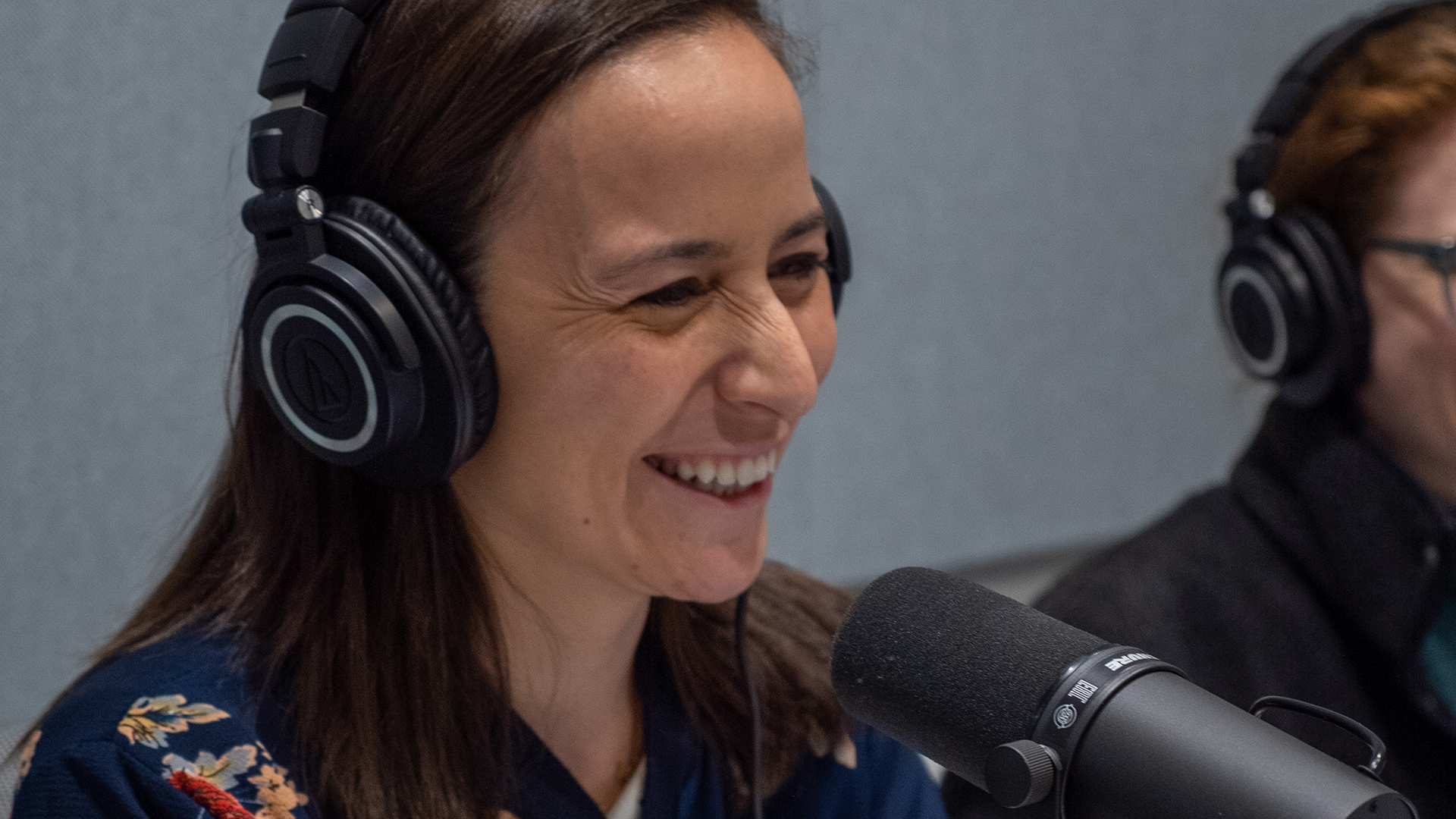
Natasha Steele
Natasha is a young adult cancer survivor, an internist and researcher, and an incoming faculty member at Stanford Medicine.
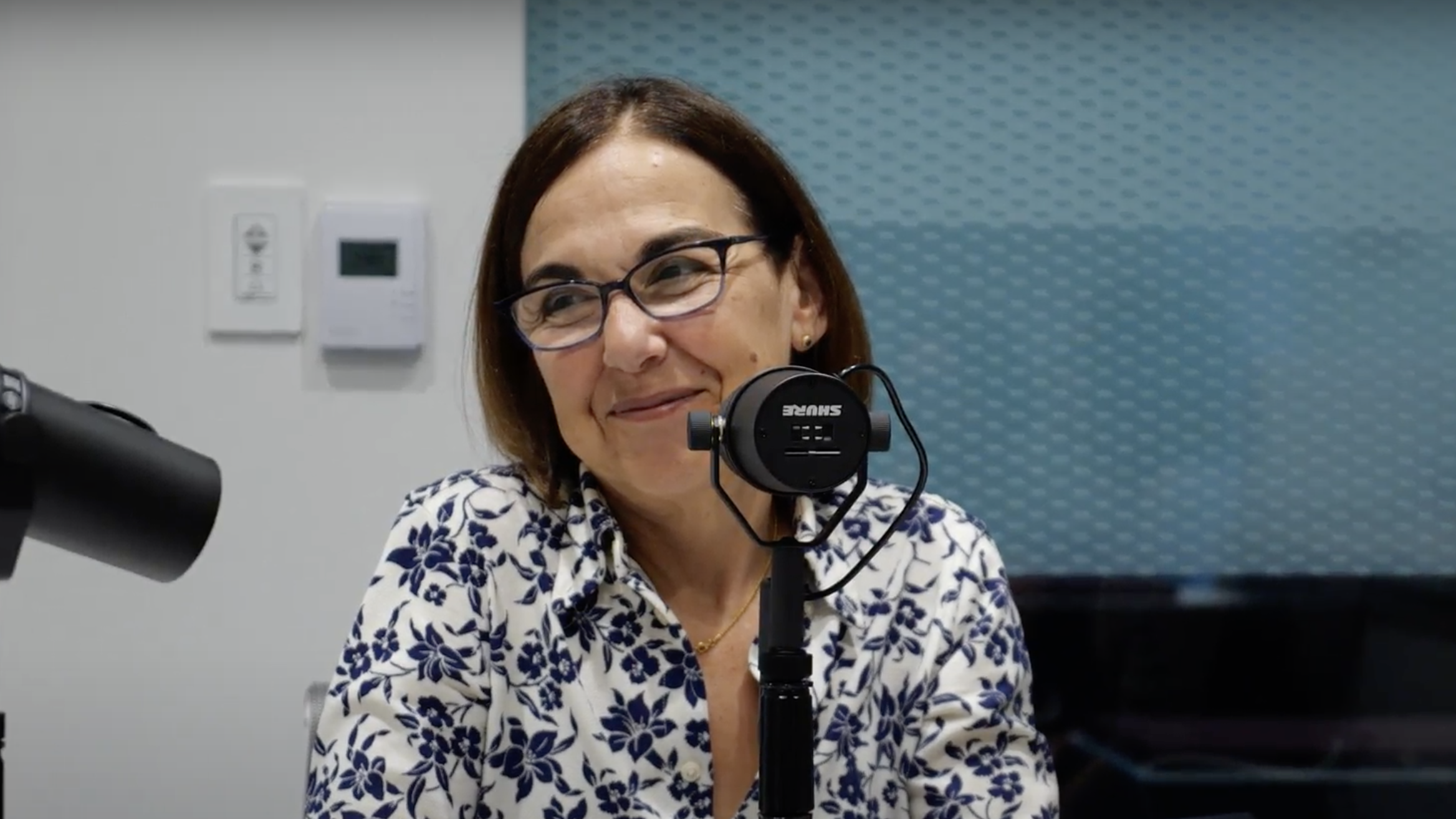
Lidia Schapira
Lidia is the director of the Stanford Cancer Survivorship Program and the executive producer of Health After Cancer.
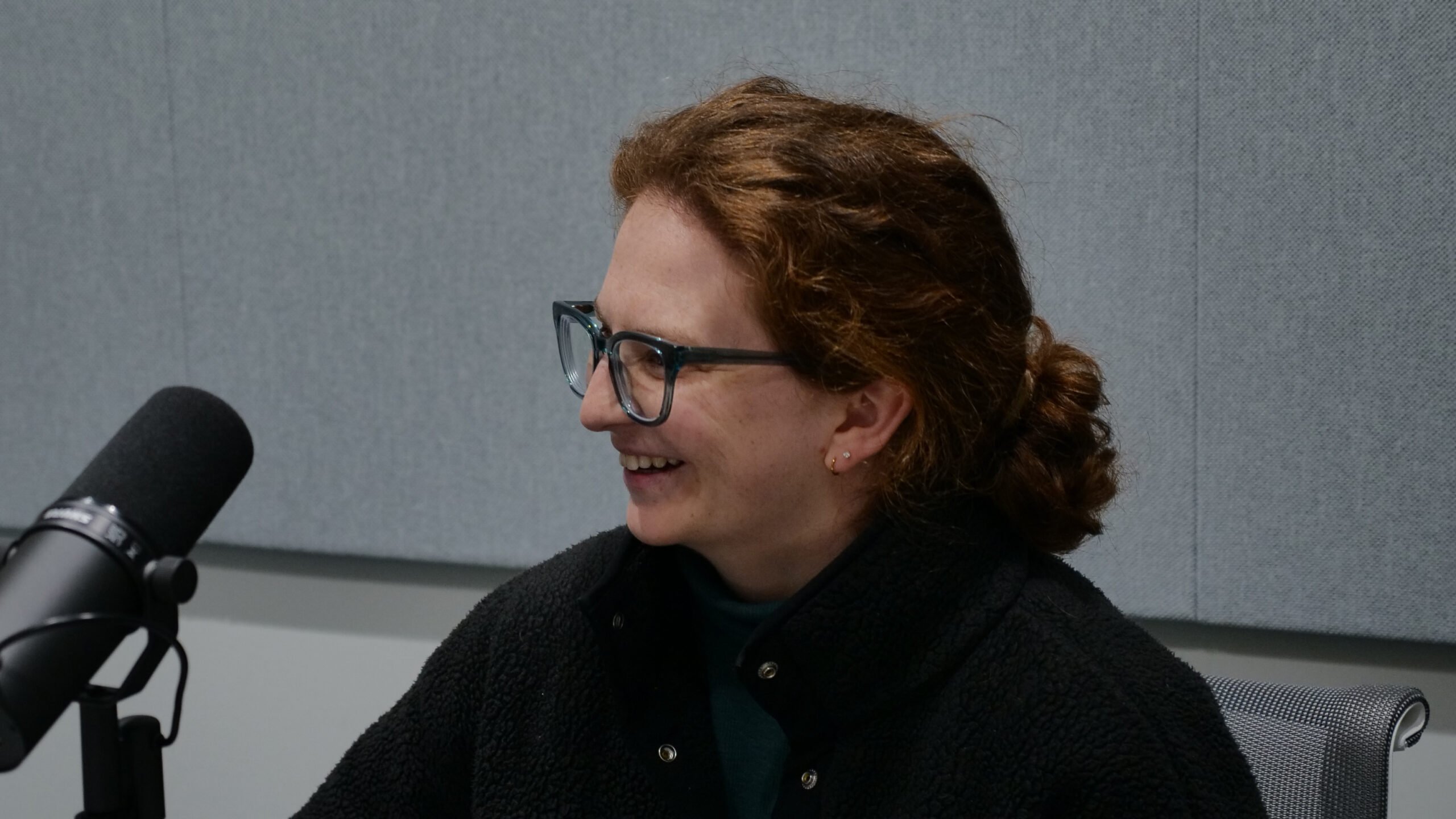
Elle Billman
Elle is a childhood cancer survivor and 2028 MD candidate at the Ichan Medical School, at Mt. Sinai, in New York.


